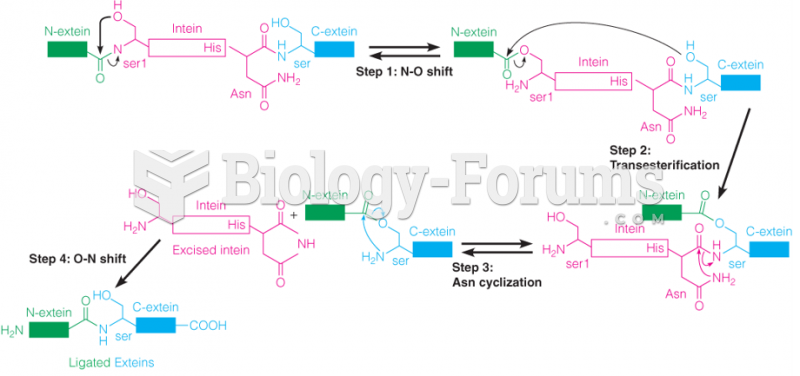|
|
|
Vital signs (blood pressure, temperature, pulse rate, respiration rate) should be taken before any drug administration. Patients should be informed not to use tobacco or caffeine at least 30 minutes before their appointment.
Children with strabismus (crossed eyes) can be treated. They are not able to outgrow this condition on their own, but with help, it can be more easily corrected at a younger age. It is important for infants to have eye examinations as early as possible in their development and then another at age 2 years.
In 2010, opiate painkllers, such as morphine, OxyContin®, and Vicodin®, were tied to almost 60% of drug overdose deaths.
Thyroid conditions cause a higher risk of fibromyalgia and chronic fatigue syndrome.
The horizontal fraction bar was introduced by the Arabs.
 An example of genetic homology: a comparison of a short amino acid sequence within the p53 protein f
An example of genetic homology: a comparison of a short amino acid sequence within the p53 protein f
 Endocarditis. The human heart has been sectioned to reveal the left ventricle and origin of the aort
Endocarditis. The human heart has been sectioned to reveal the left ventricle and origin of the aort





